12 tricks to save money on groceries, from a woman who wiped out almost $24,000 in debt

In 2009, Anna Newell Jones of And Then We Saved was over $23,000 in debt.
Instead of just cutting back her spending, she decided to stop spending as much as possible on things she didn't truly need, a pattern that she turned into her trademarked Spending Fast.
The trickiest areas to cut back, she found, tended to be groceries and clothing.
"Realizing that groceries were one of the few precious Needs-Only items I allowed myself to spend money on, I wanted to stretch every penny and shop as smartly as possible," writes Newell Jones in her upcoming book, "The Spender's Guide to Debt-Free Living."
Below, find 12 tricks Newell Jones shares in her book to save money on groceries:
Pick food that is non-perishable food or freezes well to avoid 'empty pantry syndrome.'
"Empty pantry syndrome" occurs when you have no staples at hand, so you resort to calling your local take-out joint, writes Newell Jones. To avoid "empty pantry syndrome," stock up on canned goods, nuts, rice, flour, peanut butter, oats, beans, noodles, and the like. These foods last, and you'll be able to make a number of dishes with them.
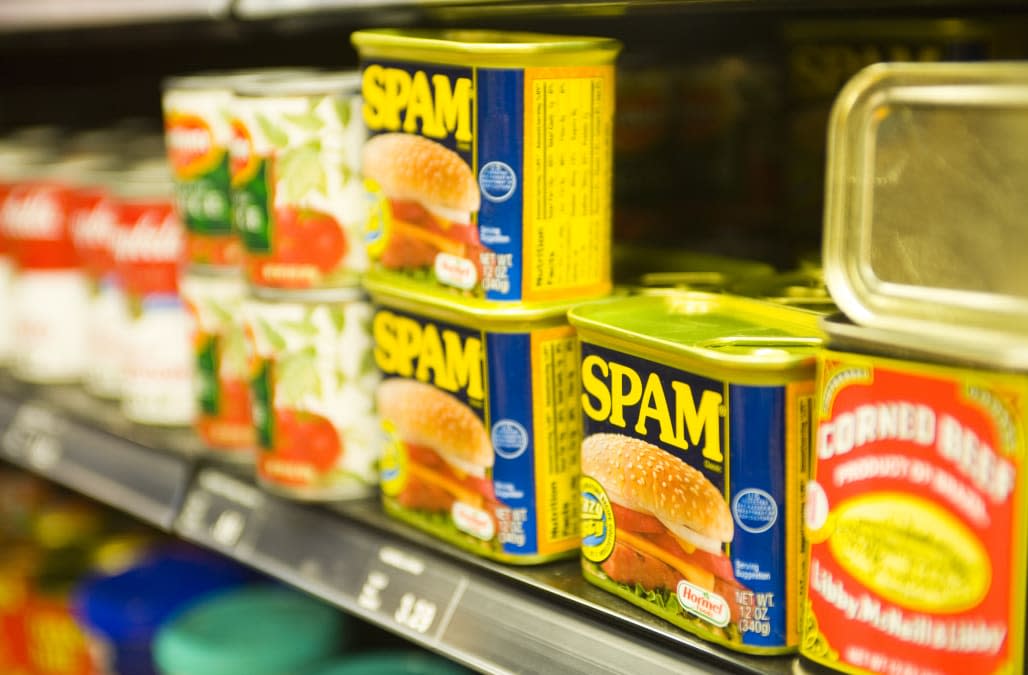
Perfect a few go-to recipes.
Keep them simple and delicious, and make a lot of them. Freeze or package leftovers in single-serve containers for the next day's lunch so you don't come across "empty pantry syndrome" or Newell Jones's other ailment: "I was running late so I couldn't pack my lunch disease."
If you're looking for affordable, delicious recipes, try Leanne Brown's free book "Good and Cheap: Eat Well on $4 a Day."
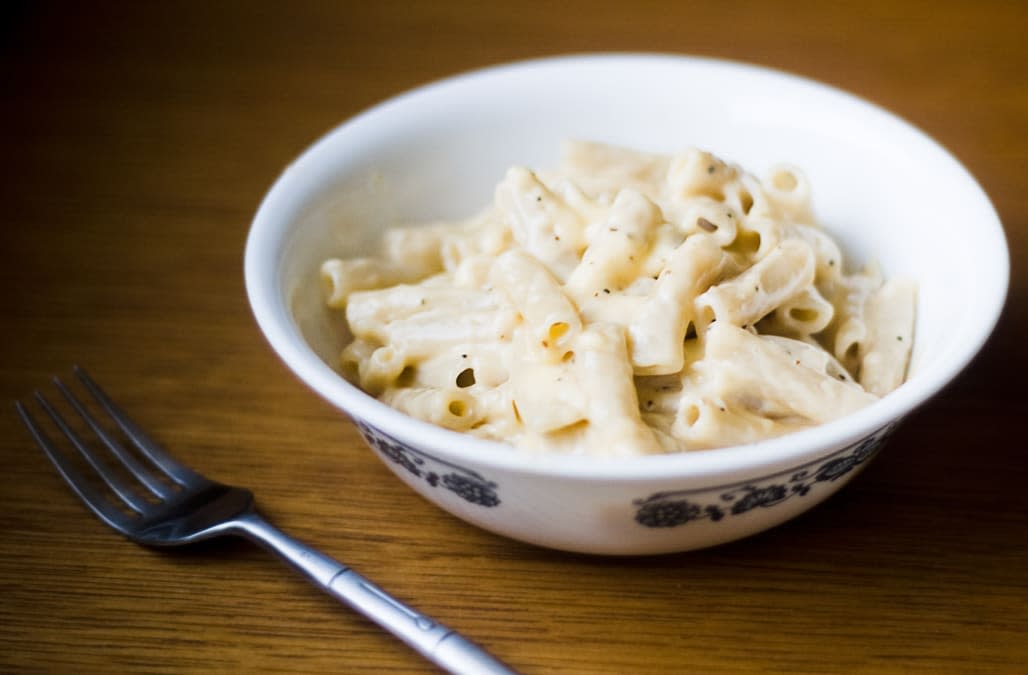
Do the 'fake out.'
Buy your name-brand coffee, cereal, or whatever the first time — but follow up with the generic version on your next trip. You probably won't be able to tell the difference, writes Newell Jones.

Embrace oatmeal.
Its healthy and filling, you can make it a million different ways, and it's dirt cheap, according to Newell Jones.

Buy special ingredients at ethnic markets.
They will likely be significantly less expensive than at your local grocery store.
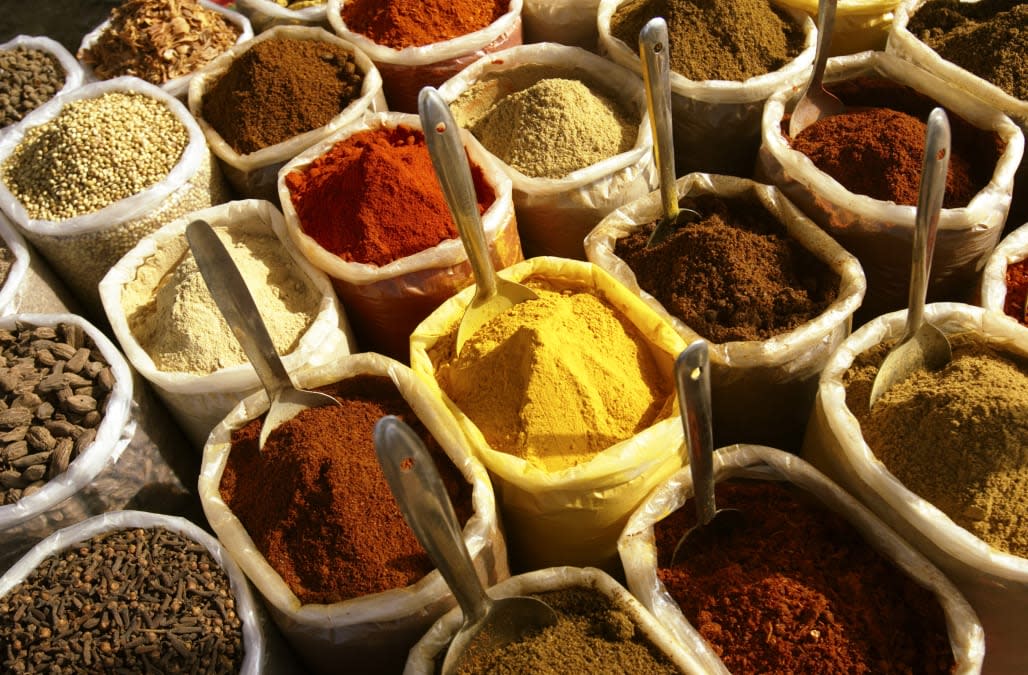
Consider becoming a 'secret shopper.'
Companies hire people to visit their stores, pretend to be an average customer and report back on the service and overall experience. Sometimes you might be reimbursed for a purchase or even receive free groceries.
Newell Jones writes of secret shopping, and another form of that is mystery shopping: For $10, you can get certified as a mystery shopper through MSPA North America, which will get you access to available job listings. Read one woman's account of being a mystery shopper — she made $14,000 in a year.

Spencer Platt/Getty Images
Shop at the local dollar store.
Newell Jones suggests getting cheap snacks and cereals at the dollar store. However, she cautions, it's only advisable if the dollar store isn't a spending binge trigger for you.

Avoid recipes that call for unusual ingredients.
Unless you are absolutely sure you'll use them several times, avoid recipe-specific ingredients. They're not worth spending the extra money, writes Newell Jones.

Getty
Resist the temptation to stock up on supplies you don't need.
Buying in bulk might seem like a great idea — and probably would be cheaper in the long run. But there's a difference between having staples and blatantly overbuying, and sometimes it's hard to distinguish between the two, writes Newell Jones.

Ask for gift cards.
Birthdays and holidays are the perfect opportunity to ask for gift cards for the grocery store.

Shop locally and in season.
As a basic rule of supply and demand, it's cheaper to buy foods when they are in season because there's an abundance in supply. Plus, buying locally supports the local economy.
One way to do this is to buy a community sponsored agriculture (CSA) share, which allows farmers to share their produce with the public. If your community offers one, you may be able to receive produce on a weekly basis in return for a fee.
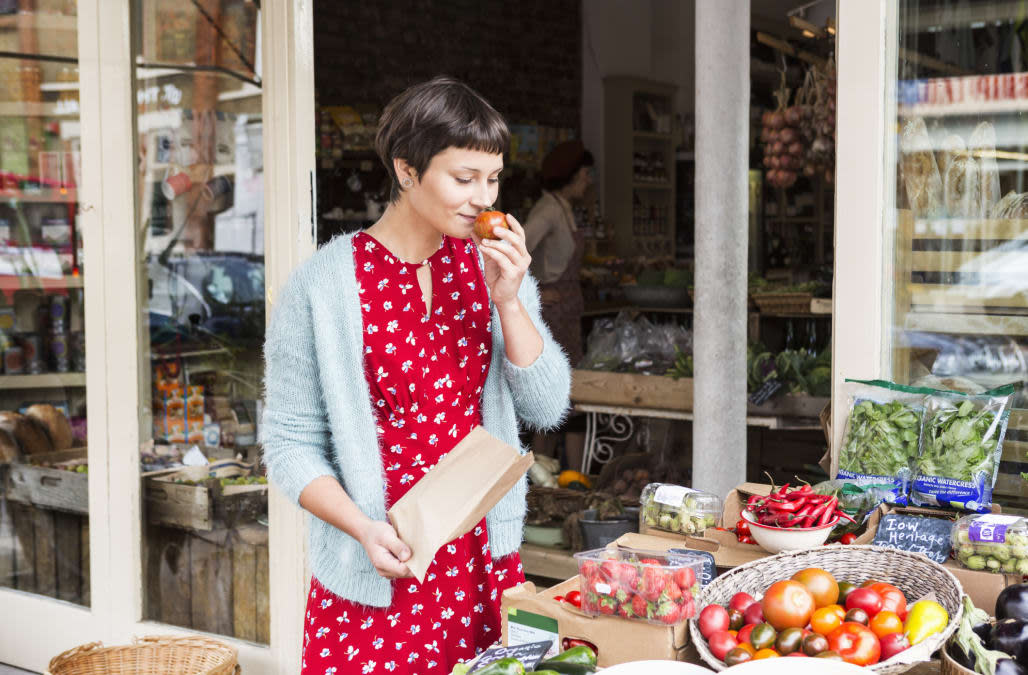
Skip most organic foods.
Not all groceries need to be organic if you're worried about your health, according to Newell Jones.
Stick to organic for the fruits and veggies known as the "Dirty Dozen," which are determined by the Environmental Working Group's Pesticides in Produce report to contain the highest levels of pesticide residues.
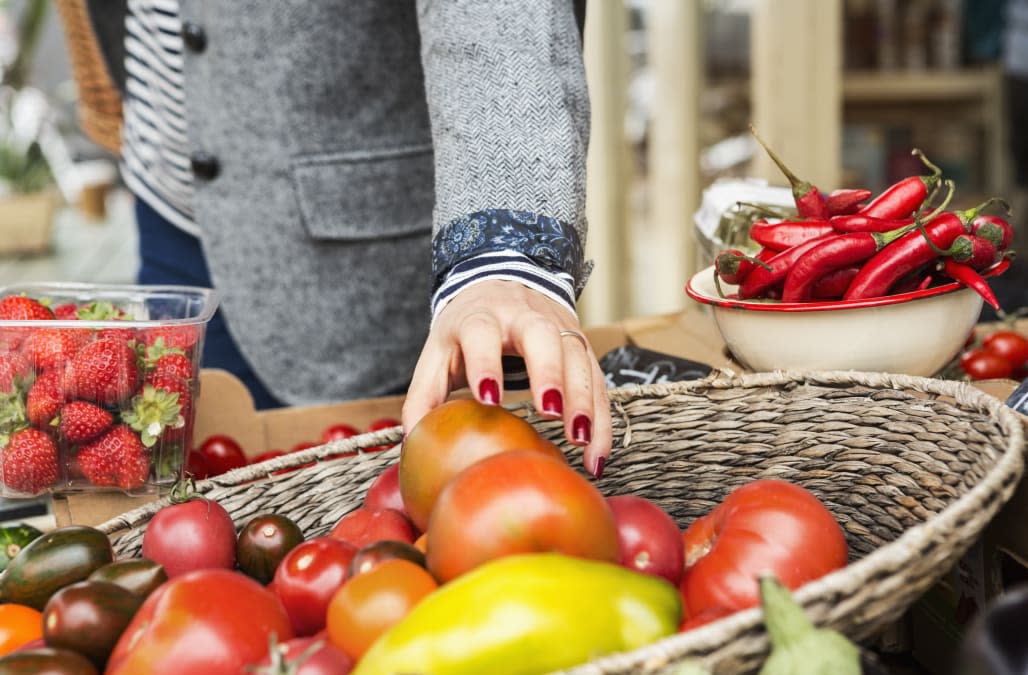
They are: apples, celery, cherry tomatoes, cucumbers, grapes, nectarines (imported), peaches, potatoes, snap peas (imported), spinach, strawberries, and sweet bell peppers.
The "Clean 15" are the fruits and veggies not as high in pesticides, or those that have inedible peels which limit your exposure to pesticides. Buy cheaper, conventional versions of: asparagus, avocados, cabbage, cantaloupe, cauliflower, eggplant, grapefruit, kiwi, mangoes, onions, papayas, pineapple, sweet corn, sweet peas (frozen), and sweet potatoes.
Related: The most expensive grocery chains
More from Business Insider
A woman who wiped out almost $24,000 of debt in 15 months shares the 3 things that helped her do it
Too many of us are making a psychological mistake that screws up our finances
9 things to do in your 20s to become a millionaire by 30
SEE ALSO: A woman who wiped out almost $24,000 of debt in 15 months shares the 3 things that helped her do it
